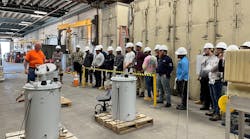If given an opportunity, most of us will find a way to justify what we want to do in nearly any circumstance. For example, at one point in my career I was leading a particular team and others suggested that we should merge core processes with a sister group to reduce cost. I was adamant about why it wouldn’t work so it never happened. A couple of years later I became the manager of both groups and merged processes within weeks of assuming the new role. In both cases I easily justified my behavior, but on the inside I knew that I was fooling myself. There are two important thoughts about this story.
First, I realized that I was subject to biases, filters, blind spots and egotistical impulses as much as anyone. In fact, if I was truthful, I realized that the person who fooled me the most was myself. Second, and equally seriously, I realized that we all do the same thing. In some cases, this self-delusion or self-serving bias is harmless, sometimes aggravating to others, sometimes bites us in the end and sometimes is flat out dangerous. The last result is the focus of this short article.
The less defined the environment and behavioral expectations, the greater our propensity to engage in self-serving bias. More wiggle room. You don’t talk yourself into 80 mph when the freeway sign says “sobriety check ahead.”
From a safety perspective, it is important to recognize that we will talk ourselves into shortcuts, skipping steps and forging readings that never seem to change. As managers, we will talk ourselves into every activity other than crew visits, process checks and workload management.
This recognition is not new of course and needs to be constantly treated. The most effective way to do this is to incorporate a set of values or virtues that will guide us even when the circumstances are the most undefined. All utilities have a generalized set of values but these by themselves are insufficient in practice. It is important to know our individual and collective tendencies in advance so that they can be accurately mitigated. The higher the stakes, the more important the mitigation.
SEALS are trained to never leave a man behind, doctors take the Hippocratic oath, attorneys must pass the bar, therapists must be licensed and temporarily upgraded or represented foreman usually just do their best. Virtuous behavior for those with great influence is critical just as it is for those with key responsibilities, like pilots, fire fighters, and police officers. Linemen, test technicians and engineers rarely receive an appropriate level of focus on virtuous behavior, but there is one position that requires immediate and renewed attention throughout the industry.
Temporary Lead
That role is the temporarily upgraded lineworker to a lead position and / or the represented foreman. In this role, the upgraded employee is responsible for delegating roles, leading the tailboard, etc. It is a complex and problematic dynamic that deserves careful review and treatment.
These two roles are burdened with inherent ambiguity and split loyalties and obligations. On one hand, both the Upgrade / Represented Foreman and the crew are represented by the union. So, the lead and the crew are equal. One on other hand, the upgrade has a legal requirement to ensure a safe workplace, even if just for the day. So, they’re not equal. Too often the “we’re equal” perspective has more influence. Why?
Because it is easier, less risky and usually adequate.
While it usually works, the upgrade process violates most of the currently accepted management fundamentals, such as clearly defined roles and expectations. Where these do exist, they are often not followed because of discomfort or split loyalties. Clear expectations will establish the legal requirements of the temporary upgrade, but absent a clear moral requirement or code, they will be insufficient to prepare the upgrade to lead in an appropriate manner. The roots of moral behavior are the same virtues that guide other aspects of our nation, communities and non-work lives.
A moral requirement, properly shared and inculcated in the culture, will provide the structure and support necessary to override the discomfort associated with a temporary supervisorial role. To define the moral obligation of an upgrade, it is first necessary to unpack the likely motivations and emotions that guide an upgrades daily decision-making process and, equally importantly, to provide a framework for guiding and informing their decisions in the future. Moral obligations should be defined and documented by each company. The process to define the moral obligation should be conducted such that it achieves “buy-in” by those who will be upgraded. The overall process ( and resulting cultural norms) is inescapably an executive responsibility and must be managed in a thoughtful and careful manner.
The chart below provides an example of the process used to clarify and document the moral obligations and necessary virtues of temporary leads and represented foremen.
The creation and reinforcement of the moral aspects of temporary job responsibilities will fill in the gaps when we are weak or unaware. Shoring up and preparing employees in advance is a legitimate moral obligation of management. There can’t possibly be a rule for all circumstances and without a clearly articulated and reinforced statement of virtuous behavior, we will fall back on what feels the most comfortable. The articulation should be carefully derived and written in plain, accessible, even memorable language. Moral behavior is usually expressed as a habit and needs to be clearly and collectively sponsored by both the company and the union. It must be constantly reinforced and celebrated. This requires a commitment and dedication that is often overlooked or ignored until it is too late.
This column will focus on both traditional training topics as well as on those things that are considered Transformative Learning, such as an awareness of self-serving bias and its potential impact on safety behavior.
Tune in next time as we discuss the science behind Mastering Your Work….



